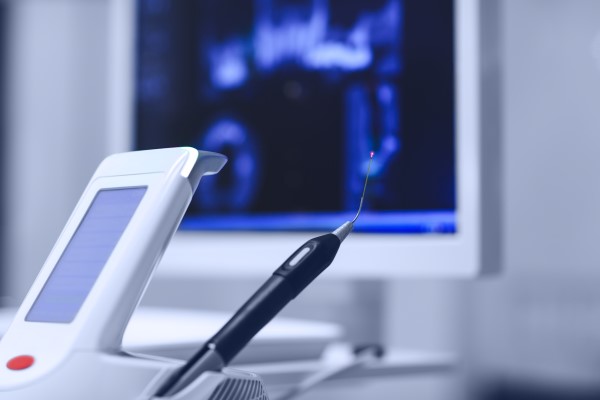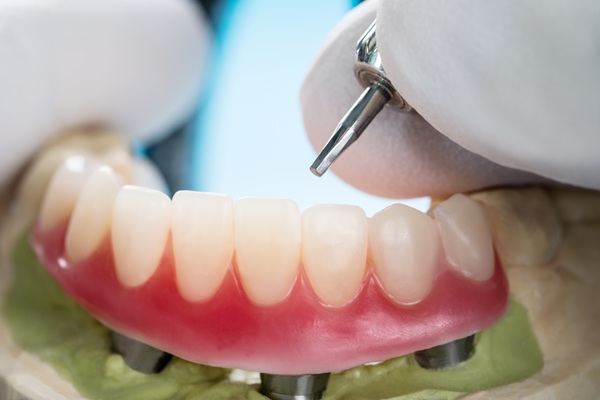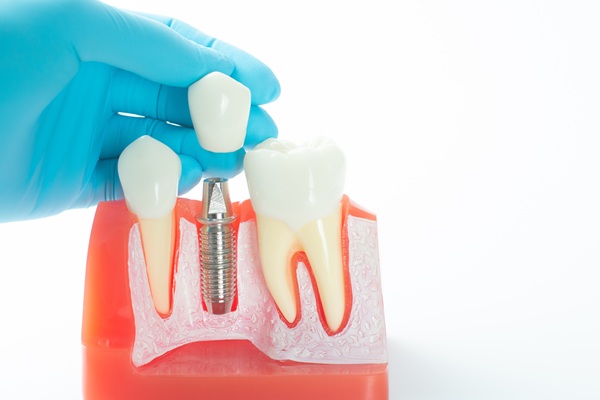What Your Periodontist Wants You to Know About LAPIP

The acronym LAPIP stands for laser-assisted peri-implantitis procedure. Periodontitis, commonly known as gum disease, is one of the leading reasons why people seek the services of a periodontist. It is caused by oral bacteria in plaque and tartar getting into gum pockets and teeth roots.
Gum disease primarily damages gum tissues and bone structures in the mouth, eventually leading to teeth falling out. Peri-implantitis is the loss of the bone structures that hold implants in place, leading to implant failure as the restoration loses stability.
Early detection goes a long way regarding gum disease treatment, and the same applies to peri-implantitis. Periodontists are often able to save the implant and restore the patient’s dental health when the infection is detected early. It is another reason why biannual dental checkups are so important.
Saving implants with LAPIP
As is the case with periodontal disease, peri-implantitis is often the result of poor dental hygiene. It can also be caused by other diseases like diabetes. Studies have linked people with peri-implantitis to a higher risk of pancreatic cancer, heart disease, and strokes.
The LAPIP procedure works by using a laser originally developed for laser gum surgery. This laser can be used to reduce the inflammation caused by gum disease and promote the regeneration of healthy tissues around the implant.
Using a laser allows a periodontist to carefully remove diseased tissues around the affected area without compromising healthy ones.
The process
The traditional approach for treating gum disease and peri-implantitis involves using metal tools and sutures to repair damaged bone and gum tissues. This approach leaves teeth roots exposed and often causes problems like increased sensitivity to temperature extremes. It also involves a longer, more uncomfortable recovery as sutured tissues heal afterward.
LAPIP provides a less invasive way to address peri-implantitis. During the procedure, a laser that is thinner than three hair strands is used to remove diseased tissue and bacteria next to the patient’s implants, teeth, and gums. The patient’s teeth are also cleaned during the procedure to remove any calculus left on them.
Remember what we said earlier about gum disease being caused by plaque and tartar getting below the gum line? Plaque is a sticky film made by oral bacteria to house them and the acids they make. It is what makes your mouth feel sticky when you get up in the morning. Fortunately, it can be removed by brushing and flossing so it does not get to do much damage to the mouth if you practice good oral hygiene.
However, plaque hardens into tartar when left on teeth for a few days. Tartar cannot be removed by brushing or flossing. It requires using metal and ultrasonic tools to get rid of it. Dentists typically perform teeth cleaning to remove tartar and protect teeth against decay and periodontitis during routine dental examinations.
Once the infected portions of the patient's gum and bone tissues have been removed, the periodontist uses the laser to seal off the area and stimulate the growth of healthy tissues.
Benefits of LAPIP over traditional gum surgery
Some of the reasons patients should consider getting LAPIP over traditional gum surgery include:
- Faster recovery and healing time: The precise nature of LAPIP treatments allows periodontists to only treat tissues in the mouth that have been damaged by gum disease. LAPIP eliminates all the bacteria in these areas, reducing inflammation and swelling as well
- Less discomfort and pain: LAPIP procedures are done with a tiny laser instead of metal tools, leading to less pain and discomfort. The laser allows the dentist to precisely remove damaged tissues, minimizing the damage done to healthy ones
- Fewer appointments; Traditional gum disease treatments often require multiple visits to the dentist since it is common to break the treatment up into smaller sections to help manage the discomfort caused by it. That is not the case with LAPIP treatments. The procedure is completed during a single visit and takes less time than traditional solutions
- Prevents unnecessary gum tissue loss: Healthy gum tissues are often lost during traditional peri-implantitis treatments since incisions have to be made to expose teeth roots. There is no need to cut into a patient’s gum tissues when performing LAPIP treatments, helping to preserve the patient's healthy gum tissues
- Safe alternative for patients with chronic health issues: Some people are not healthy enough for surgical dental procedures like gum surgery. For example, people with diabetes take longer to heal, increasing their risk of complications when getting surgical treatments.
We can save your implants
LAPIP might be what you need to save your dental implants. Give us a call or come to our Palm Beach Gardens location to set up an appointment.
Request an appointment here: https://corderoperiodontics.com or call Rafael E. Cordero, DDS PA at (561) 763-9221 for an appointment in our Palm Beach Gardens office.
Check out what others are saying about our services on Yelp: Read our Yelp reviews.
Recent Posts
Implant-supported dentures often appeal to patients who feel frustrated by loose or uncomfortable traditional dentures. This treatment uses dental implants to securely anchor a custom denture for a solution that looks natural and feels more stable in everyday life. Careful planning from a periodontist or prosthodontist can help determine whether implant-supported dentures or traditional dentures…
Appearance may be one of the first things people think about when it comes to tooth replacement. However, improved appearance is just one of the many benefits of replacing missing teeth. Tooth replacement can be key to improving not only how you feel about your smile but also boosting your oral health.Whether one chooses dentures,…
The jawbone is the part of the face that holds many essential elements together, such as the teeth, ligaments, and muscles; however, bone grafting may sometimes be necessary if the jawbone is too weak to perform these tasks. A person’s jawbone can deteriorate over time, whether due to age, genetics, poor oral health, cancer, or…
A periodontist can help improve gum recession. This is one of the first signs of gum disease. Seeing this dental care provider early can help you target the problem with the necessary treatment. Here are the details on how a periodontist can help fix receding gums.Getting a regular professional dental cleaning can remove the plaque…


